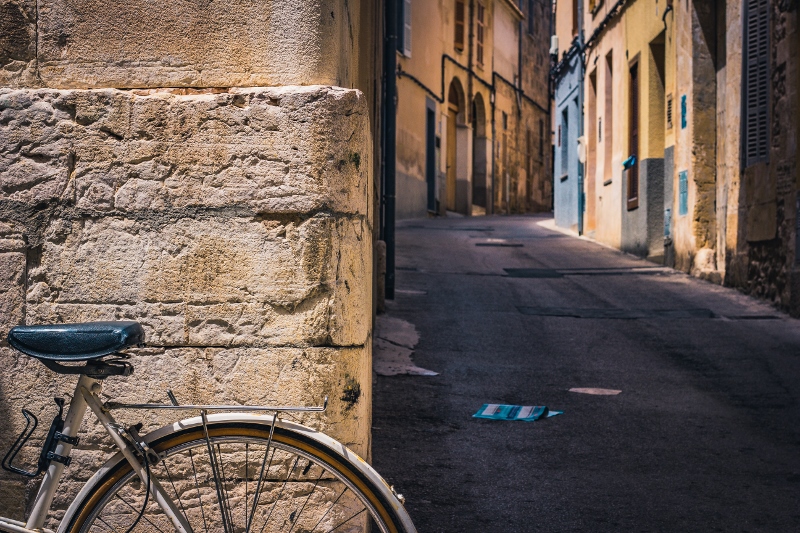- Being frugal with creativity and flare is a virtue.
- Frugal life is about being mindful with money, energy and time.
- Frugality is a test of what you value in your life and is empowering.
My grandmother was extremely frugal. She grew her own food, never wasted anything and viewed her clothes as means to modesty and warmth. My grandmother would have given some extreme frugality bloggers a run for their money.
Did I learn how to be frugal by my grandmother’s knee?
Did I heck! The memory of long evenings spent in darkness, not to waste electricity, you understand, put me off for decades.
It also made me question the many meanings and misunderstandings about frugality. Here is what I figured out.
- Frugality without creativity is about deprivation, limiting your life and opportunities.
- Extreme frugality is justified and sustainable only over short periods of time. Long-term extreme frugality by choice is for masochists with little imagination.
- Simple frugality can be very expensive. E.g. driving 20 miles to save 5 pence on a can of beans.
On the other hand, being frugal can be a virtue rather than a necessity. This kind of being frugal involves ‘holistic’ thinking concerns beyond simply saving money and improving your quality of life. For example, making our bread saves £30 per month; we also know that there are no preservatives in the bread. I called this ‘frugality as art’.
I also worked out that for me, not being naturally frugal, frugality as a virtue is about:
- Not wasting;
- Getting good value and
- Optimising consumption.
Living my life according to these simple rules is as being frugal as I would get.
But this is me. Let us now see what frugal means to 17 frugal mavericks – personal finance bloggers who write about frugality, tips, and simple living being. Many of them offer a unique combination of frugal living tips and inspiration.
Being frugal is the ‘economy of use’
Frugality is experienced by many as being about smart, careful and mindful spending. Here is what frugality means in their own words:
“For me frugality means spending my money carefully, making it work hard and getting the most from it. I still enjoy luxuries in life and save for things I want, but I respect my money.”
Katy Stevens, Katykicker.com
“To me, frugality means being smart with your money. If there is a way to save money on something, looking for that and applying it would be frugal in my book.”
Francesca Henry, FromPenniesToPounds
“To me, being frugal means being careful with your money and making it work for you; whether that’s saving for the future, saving money on everyday items or not wasting it.”
Nicola Richardson, The Frugal Cottage
“Frugality is about being very conscious about how I spend and what I do with my money. I don’t think it takes any more time to be good at living a frugal life; I’ve just learnt to make small adaptions, so I get the most overall value.”
Naomi Willis, Skint Chef
Frugality or thrift
We have come to use ‘frugality’ and ‘thrift’ as synonyms. Yes, these notions have very different roots and for some time had somewhat different meaning.
‘Thrift’ is first found as a word in the 1300 and comes from the Middle English word ‘thrive’ – or to prosper.
‘Frugal’ can be traced back to the 1590s and originates in the Middle French word for ‘economy of use’.
Some are still aware of the subtle differences in meaning between the two. For instance:
“Frugal for me feels stark and tight like I’d have to do without as opposed to thrifty where I spend plenty of cash but am careful with that resource so get as much for my money as possible.”
Hollie Hutchinson, Thrifty Mum
“Being wise with money. I think I’m frugal rather than thrifty because I save in one place so I can spend it in another.”
Kirsty Holden, The Money Saving Mum
In my mind, frugality and thrift have the same outcome – careful consumption. One emphasises balance and the other economy; that’s all.
Being frugal and priorities
There is another group of frugal mavericks for whom frugality is not so much about an overall ‘economy of use’ but rather about priorities. (I probably fit in this group.)
Nicola Pemberton, from Pemlife, put this most succinctly:
“Save on the boring to spend on the fun.”
Others, in a similar spirit, see frugality as prioritising between competing money demands:
“Frugality, to me, means prioritising spending on that which matters more to you and minimising spending on that which matters less. I’ll spend a lot on an item/experience/trip that will make a significant positive impact to my life. I’ll minimise spending on necessities (as much as I can).”
Andrew Young, Capital Matters
“Frugality have given me the chance to spend my money how I want to spend it. By being frugal on the necessities I can afford to save more money or put it towards something I really want, like travel. Frugality isn’t a competition to see who can live on the least amount of money, instead it gives us options.”
Emma Drew, EmmaDrew
“Being frugal in certain areas means that I can spend more on the things I love! By reducing spending things that add no value to my life, I can spend more on the stuff that matters to me. That’s investing in the future, holidays and adventures on the bikes!”
Eileen Adamson, Your Money Sorted
“To me being frugal is spending as little as possible on the necessary stuff (like bills!) so I have more to spend on things that make me happy, like days out and holidays.”
Fiona Elizabeth Hawkes, Savvy in Somerset
Frugality and simple living
Being frugal and simple living dovetail nicely:
“Frugality means to me keeping it simple and where possibly living by the principle that money does not BUY happiness and that with creativity and care many fabulous things are affordable and waste can be avoided.”
Becky Goddard-Hill, Thrifty Home
“To me, frugality is all about making the most of my money. I avoid spending where possible and look out for better prices, deals and offers when I do. There’s also an element of stretching money, so for example I’d rather buy better quality stuff second hand or discounted, than brand new, low cost items that won’t last for long. For me, frugality also overlaps with environmentalism, when it comes to consuming less, reusing stuff, repairing things and cutting waste. The best things in life aren’t things at all!”
Faith Archer, Much More With Less
Frugality and value
Being frugal is not about restricting your life; it is about getting good value for your money.
“I see frugality as being incredibly conscious and restrained in spending. It’s about not spending unless necessary, and when you do make sure that you don’t spend more than you have too.”
Andy Webb, Be Clever With Your Cash
“To me it means getting the best deal on everything I spend money on. Getting the best deal on a family holiday all the way to a great return and low fees on investment, and shopping at Aldi to save my £££. Also being aware of the environmental impact of the company you are giving money too.”
Lynn James, Mrs Mummypenny
Frugality as necessity
Often, being frugal is not a choice or a matter of priority. Frugality, even extreme frugality, can be a necessity and make the difference between survival and disaster.
“To me, frugality means something a little different. My take on it is more on the Mr Micawber model. I write for people who are in the position I’ve been in many times; people who need to stretch a meagre budget to the max. Frugality being the difference between making ends meet and disaster.”
Lesley Negus, Thrifty Lesley
Being frugal as empowerment
Frugality as a virtue can be very empowering. Testing your limits, knowing that you can survive on very little gives a feeling of control not over your money but your whole life.
“Being freakily frugal sounds like a tough grown up challenge but is actually super rewarding when you are in the swing of things. It simply means living to your absolute means, in a sensible and clever manner while roping in a sprinkle of planning and a dusting of commitment.”
Kelly Eroglu, Reduced Grub
“Frugality means control to me. I have lost sleep over money in the past and I don’t want to go there again. Now I also associate frugality with sustainability. The principles of wasting nothing, making do and mending and not buying stuff you don’t need works perfectly with a simpler, more sustainable way of living.”
Jane Berry, Shoestring Cottage
Finally…
Whether you are being frugal by necessity or choice, frugality doesn’t have to be about deprivation and extremes.
Being frugal is about mindful spending, taste for simple life and knowing what you value in life. It is about swimming against the current in a world dominated by consumerism.
Hard but rewarding.

